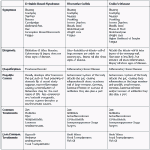I am sure your mind must be pondering, “that title doesn’t mean what I think it means”, well actually it means exactly what you’re probably thinking. The first time I heard about fecal transplantation was when my girlfriend discussed it after seeing an episode of Grey’s Anatomy. I thought it was a joke, no way they would really do that. Thanks to the internet and research, it turns out it is indeed not a joke, but an actual procedure that has helped many people.
Fecal transplantation is simply taking stool from a donor who has a healthy, functional digestive system and implanting it into the affected patient. A poo slurry is created with saline, stool & in some cases added fiber. This is done with a blender(you probably won’t want to make smoothies in this thing afterward). Implantation can be done in different ways, such as via enema, colonoscopy or naso-jejunal tube. This is repeated for 5 – 10 days.
The idea behind fecal transplantation is that the sufferer with the disease is suffering from a bacterial/microbial imbalance in their digestive system. There are literally thousand and thousands of different types of microbes and bacteria in our bodies. If you are missing certain types then you will have an imbalance that will either cause problems with digesting food or allow harmful invaders to setup shop in your digestive system. Since you won’t have the good bacteria available to fight off the infection, this can cause long-term problems. This is the case with Clostridium difficile, a bacteria that is extremely hard to get rid of with normal antibiotics or by the immune system. Also in some cases Crohn’s Disease may be the bodies response to invading bacteria, but since it has trouble penetrating the gut to attack the bacteria, it instead inflicts damage on the gut itself.
One thing that is interesting is that many people who had a a history of taking antibiotics seemed more likely to see improvement after transplantation. Antibiotics are known to wipe out your bacterial flora. When I was little I went through many ear infections which involved many doses of antibiotics. I am wondering if this might play some part in my Irritable Bowel Syndrome. A lot of this is theory, but the facts are that fecal transplantation is real and has had beneficial results for many people.
Prof. Thomas Borody has been pioneering this technique in Australia at the Centre for Digestive Diseases. There hasn’t been much effort taking place in the United States, though there are some Gastro doctors who may be willing to entertain the idea. There have been suggestions that the University of Chicago has been holding focus groups regarding fecal transplants & possibly seeking a grant to do further research. There is nothing on their website right now confirming this though.
If you are in the US or UK or you’re not a character on a Grey’s Anatomy episode, you might try doing this on your own. Some enterprising individuals have taken up doing the job of doing it on their own by recruiting stool from their spouse or family. Some have had surprisingly good results as far as combating Crohn’s or Irritable Bowel Syndrome symptoms. Here is a very informative discussion from the HealingWell.com forums with experiences from people who have done the procedure themselves.
Have you done fecal transplantation? Are you a doctor researching it? Comment or e-mail and tell me your story.
References:

